- Home
- Hilary Mantel
Wolf Hall
Wolf Hall Read online
Once again to Mary Robertson:
after my right harty commendacions,
and with spede.
“Am I not a man like other men? Am I not? Am I not?”
HENRY VIII to Eustache Chapuys, Imperial Ambassador
Contents
Cast of Characters
Family Trees
Part One
I Falcons. Wolf Hall, Wiltshire: September 1535
II Crows. London and Kimbolton: Autumn 1535
III Angels. London: Christmas 1535–New Year 1536
Part Two
I The Black Book. London: January–April 1536
II Master of Phantoms. London: May 1536
III Spoils. London: Summer 1536
Author’s Note
Acknowledgements
Cast of Characters
The Cromwell Household
THOMAS CROMWELL, a blacksmith’s son: now Secretary to the King, Master of the Rolls, Chancellor of Cambridge University, and deputy to the king as head of the church in England.
GREGORY CROMWELL, his son.
RICHARD CROMWELL, his nephew.
RAFE SADLER, his chief clerk, brought up by Cromwell as his son.
HELEN, RAFE’S beautiful wife.
THOMAS AVERY, the household accountant.
THURSTON, his master cook.
CHRISTOPHE, a servant.
DICK PURSER, keeper of the watchdogs.
ANTHONY, a jester.
The Dead
THOMAS WOLSEY, cardinal, papal legate, Lord Chancellor: dismissed from office, arrested and died, 1530.
JOHN FISHER, Bishop of Rochester: executed 1535.
THOMAS MORE, Lord Chancellor after Wolsey: executed 1535.
ELIZABETH, ANNE AND GRACE CROMWELL: Thomas Cromwell’s wife and daughters, died 1527–28: also Katherine Williams and Elizabeth Wellyfed, his sisters.
The King’s Family
HENRY VIII.
ANNE BOLEYN, his second wife.
ELIZABETH, Anne’s infant daughter, heir to the throne.
HENRY FITZROY, Duke of Richmond, the king’s illegitimate son.
The King’s Other Family
KATHERINE OF ARAGON, Henry’s first wife, divorced and under house arrest at Kimbolton.
MARY, Henry’s daughter by Katherine and the alternative heir to the throne: also under house arrest.
MARIA DE SALINAS, a former lady-in-waiting to Katherine of Aragon.
SIR EDMUND BEDINGFIELD, Katherine’s keeper.
GRACE, his wife.
The Howard & Boleyn Families
THOMAS HOWARD, Duke of Norfolk, uncle to the queen: ferocious senior peer and an enemy of Cromwell.
HENRY HOWARD, Earl of Surrey, his young son.
THOMAS BOLEYN, Earl of Wiltshire, the queen’s father: ‘Monseigneur’.
GEORGE BOLEYN, Lord Rochford, the queen’s brother.
JANE, Lady Rochford, George’s wife.
MARY SHELTON, the queen’s cousin.
And offstage: Mary Boleyn, the queen’s sister, now married and living in the country, but formerly the king’s mistress.
The Seymour Family of Wolf Hall
OLD SIR JOHN, notorious for having had an affair with his daughter-in-law.
LADY MARGERY, his wife.
EDWARD SEYMOUR, his eldest son.
THOMAS SEYMOUR, a younger son.
JANE SEYMOUR, his daughter, lady-in-waiting to both Henry’s queens.
BESS SEYMOUR, her sister, married to Sir Anthony Oughtred, Governor of Jersey: then widowed.
The Courtiers
CHARLES BRANDON, Duke of Suffolk: widower of Henry VIII’s sister Mary: a peer of limited intellect.
THOMAS WYATT, a gentleman of unlimited intellect: Cromwell’s friend: widely suspected of being a lover of Anne Boleyn.
HARRY PERCY, Earl of Northumberland: a sick and indebted young nobleman, once betrothed to Anne Boleyn.
FRANCIS BRYAN, ‘the Vicar of Hell’, related to both the Boleyns and the Seymours.
NICHOLAS CAREW, Master of the Horse: an enemy of the Boleyns.
WILLIAM FITZWILLIAM, Master Treasurer, also an enemy of the Boleyns.
HENRY NORRIS, known as ‘gentle Norris’, chief of the king’s privy chamber.
FRANCIS WESTON, a reckless and extravagant young gentleman.
WILLIAM BRERETON, a hard-nosed and quarrelsome older gentleman.
MARK SMEATON, a suspiciously well-dressed musician.
ELIZABETH, Lady Worcester, a lady-in-waiting to Anne Boleyn.
HANS HOLBEIN, painter.
The Clerics
THOMAS CRANMER, Archbishop of Canterbury: Cromwell’s friend.
STEPHEN GARDINER, Bishop of Winchester: Cromwell’s enemy.
RICHARD SAMPSON, legal adviser to the king in his matrimonial affairs.
The Officers of State
THOMAS WRIOTHESLEY, known as Call-Me-Risley, Clerk of the Signet.
RICHARD RICHE, Solicitor General.
THOMAS AUDLEY, Lord Chancellor.
The Ambassadors
EUSTACHE CHAPUYS, ambassador of Emperor Charles V.
JEAN DE DINTEVILLE, a French envoy.
The Reformers
HUMPHREY MONMOUTH, wealthy merchant, friend of Cromwell and evangelical sympathiser: patron of William Tyndale, the Bible translator, now in prison in the Low Countries.
ROBERT PACKINGTON: a merchant of similar sympathies.
STEPHEN VAUGHAN, a merchant at Antwerp, friend and agent of Cromwell.
The ‘Old Families’ with Claims to the Throne
MARGARET POLE, niece of King Edward IV, supporter of Katherine of Aragon and the princess Mary.
HENRY, Lord Montague, her son.
HENRY COURTENAY, Marquis of Exeter.
GERTRUDE, his ambitious wife.
At the Tower of London
SIR WILLIAM KINGSTON, the constable.
LADY KINGSTON, his wife.
EDMUND WALSINGHAM, his deputy.
LADY SHELTON, aunt of Anne Boleyn.
A French executioner.
Part One
I
Falcons
WILTSHIRE, SEPTEMBER 1535
His children are falling from the sky. He watches from horseback, acres of England stretching behind him; they drop, gilt-winged, each with a blood-filled gaze. Grace Cromwell hovers in thin air. She is silent when she takes her prey, silent as she glides to his fist. But the sounds she makes then, the rustle of feathers and the creak, the sigh and riffle of pinion, the small cluck-cluck from her throat, these are sounds of recognition, intimate, daughterly, almost disapproving. Her breast is gore-streaked and flesh clings to her claws.
Later, Henry will say, ‘Your girls flew well today.’ The hawk Anne Cromwell bounces on the glove of Rafe Sadler, who rides by the king in easy conversation. They are tired; the sun is declining, and they ride back to Wolf Hall with the reins slack on the necks of their mounts. Tomorrow his wife and two sisters will go out. These dead women, their bones long sunk in London clay, are now transmigrated. Weightless, they glide on the upper currents of the air. They pity no one. They answer to no one. Their lives are simple. When they look down they see nothing but their prey, and the borrowed plumes of the hunters: they see a flittering, flinching universe, a universe filled with their dinner.
All summer has been like this, a riot of dismemberment, fur and feather flying; the beating off and the whipping in of hounds, the coddling of tired horses, the nursing, by the gentlemen, of contusions, sprains and blisters. And for a few days at least, the sun has shone on Henry. Sometime before noon, clouds scudded in from the west and rain fell in big scented drops; but the sun re-emerged with a scorching heat, and now the sky is so clear you can see into Heaven and spy on what the saints are doing.
A
s they dismount, handing their horses to the grooms and waiting on the king, his mind is already moving to paperwork: to dispatches from Whitehall, galloped down by the post routes that are laid wherever the court shifts. At supper with the Seymours, he will defer to any stories his hosts wish to tell: to anything the king may venture, tousled and happy and amiable as he seems tonight. When the king has gone to bed, his working night will begin.
Though the day is over, Henry seems disinclined to go indoors. He stands looking about him, inhaling horse sweat, a broad, brick-red streak of sunburn across his forehead. Early in the day he lost his hat, so by custom all the hunting party were obliged to take off theirs. The king refused all offers of substitutes. As dusk steals over the woods and fields, servants will be out looking for the stir of the black plume against darkening grass, or the glint of his hunter’s badge, a gold St Hubert with sapphire eyes.
Already you can feel the autumn. You know there will not be many more days like these; so let us stand, the horseboys of Wolf Hall swarming around us, Wiltshire and the western counties stretching into a haze of blue; let us stand, the king’s hand on his shoulder, Henry’s face earnest as he talks his way back through the landscape of the day, the green copses and rushing streams, the alders by the water’s edge, the early haze that lifted by nine; the brief shower, the small wind that died and settled; the stillness, the afternoon heat.
‘Sir, how are you not burned?’ Rafe Sadler demands. A redhead like the king, he has turned a mottled, freckled pink, and even his eyes look sore. He, Thomas Cromwell, shrugs; he hangs an arm around Rafe’s shoulders as they drift indoors. He went through the whole of Italy – the battlefield as well as the shaded arena of the counting house – without losing his London pallor. His ruffian childhood, the days on the river, the days in the fields: they left him as white as God made him. ‘Cromwell has the skin of a lily,’ the king pronounces. ‘The only particular in which he resembles that or any other blossom.’ Teasing him, they amble towards supper.
The king had left Whitehall the week of Thomas More’s death, a miserable dripping week in July, the hoof prints of the royal entourage sinking deep into the mud as they tacked their way across to Windsor. Since then the progress has taken in a swathe of the western counties; the Cromwell aides, having finished up the king’s business at the London end, met up with the royal train in mid-August. The king and his companions sleep sound in new houses of rosy brick, in old houses whose fortifications have crumbled away or been pulled down, and in fantasy castles like toys, castles never capable of fortification, with walls a cannonball would punch in as if they were paper. England has enjoyed fifty years of peace. This is the Tudors’ covenant; peace is what they offer. Every household strives to put forward its best show for the king, and we’ve seen some panic-stricken plastering these last weeks, some speedy stonework, as his hosts hurry to display the Tudor rose beside their own devices. They search out and obliterate any trace of Katherine, the queen that was, smashing with hammers the pomegranates of Aragon, their splitting segments and their squashed and flying seeds. Instead – if there is no time for carving – the falcon of Anne Boleyn is crudely painted up on hatchments.
Hans has joined them on the progress, and made a drawing of Anne the queen, but it did not please her; how do you please her, these days? He has drawn Rafe Sadler, with his neat little beard and his set mouth, his fashionable hat a feathered disc balanced precariously on his cropped head. ‘Made my nose very flat, Master Holbein,’ Rafe says, and Hans says, ‘And how, Master Sadler, is it in my power to fix your nose?’
‘He broke it as a child,’ he says, ‘running at the ring. I picked him up myself from under the horse’s feet, and a sorry bundle he was, crying for his mother.’ He squeezes the boy’s shoulder. ‘Now, Rafe, take heart. I think you look very handsome. Remember what Hans did to me.’
Thomas Cromwell is now about fifty years old. He has a labourer’s body, stocky, useful, running to fat. He has black hair, greying now, and because of his pale impermeable skin, which seems designed to resist rain as well as sun, people sneer that his father was an Irishman, though really he was a brewer and a blacksmith at Putney, a shearsman too, a man with a finger in every pie, a scrapper and brawler, a drunk and a bully, a man often hauled before the justices for punching someone, for cheating someone. How the son of such a man has achieved his present eminence is a question all Europe asks. Some say he came up with the Boleyns, the queen’s family. Some say it was wholly through the late Cardinal Wolsey, his patron; Cromwell was in his confidence and made money for him and knew his secrets. Others say he haunts the company of sorcerers. He was out of the realm from boyhood, a hired soldier, a wool trader, a banker. No one knows where he has been and who he has met, and he is in no hurry to tell them. He never spares himself in the king’s service, he knows his worth and merits and makes sure of his reward: offices, perquisites and title deeds, manor houses and farms. He has a way of getting his way, he has a method; he will charm a man or bribe him, coax him or threaten him, he will explain to a man where his true interests lie, and he will introduce that same man to aspects of himself he didn’t know existed. Every day Master Secretary deals with grandees who, if they could, would destroy him with one vindictive swipe, as if he were a fly. Knowing this, he is distinguished by his courtesy, his calmness and his indefatigable attention to England’s business. He is not in the habit of explaining himself. He is not in the habit of discussing his successes. But whenever good fortune has called on him, he has been there, planted on the threshold, ready to fling open the door to her timid scratch on the wood.
At home in his city house at Austin Friars, his portrait broods on the wall; he is wrapped in wool and fur, his hand clenched around a document as if he were throttling it. Hans had pushed a table back to trap him and said, Thomas, you mustn’t laugh; and they had proceeded on that basis, Hans humming as he worked and he staring ferociously into the middle distance. When he saw the portrait finished he had said, ‘Christ, I look like a murderer’; and his son Gregory said, didn’t you know? Copies are being made for his friends, and for his admirers among the evangelicals in Germany. He will not part with the original – not now I’ve got used to it, he says – and so he comes into his hall to find versions of himself in various stages of becoming: a tentative outline, partly inked in. Where to begin with Cromwell? Some start with his sharp little eyes, some start with his hat. Some evade the issue and paint his seal and scissors, others pick out the turquoise ring given him by the cardinal. Wherever they begin, the final impact is the same: if he had a grievance against you, you wouldn’t like to meet him at the dark of the moon. His father Walter used to say, ‘My boy Thomas, give him a dirty look and he’ll gouge your eye out. Trip him, and he’ll cut off your leg. But if you don’t cut across him, he’s a very gentleman. And he’ll stand anybody a drink.’
Hans has drawn the king, benign in summer silks, seated after supper with his hosts, the casements open to late birdsong, the first tapers coming in with the candied fruits. At each stage of his progress Henry stops in the principal house, with Anne the queen; his entourage beds down with the local gentlefolk. It is usual for the king’s hosts, once at least in the visit, to entertain these peripheral hosts by way of thanks, which places a strain on the housekeeping arrangements. He has counted the provision carts rolling in; he has seen kitchens thrown into turmoil, and he himself has been down in the grey-green hour before dawn, when the brick ovens are swabbed out ready for the first batch of loaves, as carcasses are spitted, pots set on trivets, poultry plucked and jointed. His uncle was a cook to an archbishop, and as a child he hung about the Lambeth Palace kitchens; he knows this business inside out, and nothing about the king’s comfort must be left to chance.
These days are perfect. The clear untroubled light picks out each berry shimmering in a hedge. Each leaf of a tree, the sun behind it, hangs like a golden pear. Riding westward in high summer, we have dipped into sylvan chases and crested the downs, emergin
g into that high country where, even across two counties, you can sense the shifting presence of the sea. In this part of England our forefathers the giants left their earthworks, their barrows and standing stones. We still have, every Englishman and woman, some drops of giant blood in our veins. In those ancient times, in a land undespoiled by sheep or plough, they hunted the wild boar and the elk. The forest stretched ahead for days. Sometimes antique weapons are unearthed: axes that, wielded with double fist, could cut down horse and rider. Think of the great limbs of those dead men, stirring under the soil. War was their nature, and war is always keen to come again. It’s not just the past you think of, as you ride these fields. It’s what’s latent in the soil, what’s breeding; it’s the days to come, the wars unfought, the injuries and deaths that, like seeds, the soil of England is keeping warm. You would think, to look at Henry laughing, to look at Henry praying, to look at him leading his men through the forest path, that he sits as secure on his throne as he does on his horse. Looks can deceive. By night, he lies awake; he stares at the carved roof beams; he numbers his days. He says, ‘Cromwell, Cromwell, what shall I do?’ Cromwell, save me from the Emperor. Cromwell, save me from the Pope. Then he calls in his Archbishop of Canterbury, Thomas Cranmer, and demands to know, ‘Is my soul damned?’
Back in London, the Emperor’s ambassador, Eustache Chapuys, waits daily for news that the people of England have risen against their cruel and ungodly king. It is news that he dearly wishes to hear, and he would spend labour and hard cash to make it come true. His master, the Emperor Charles, is lord of the Low Countries as well as Spain and her lands beyond the seas; Charles is rich and, from time to time, he is angry that Henry Tudor has dared to set aside his aunt, Katherine, to marry a woman whom the people on the streets call a goggle-eyed whore. Chapuys is exhorting his master in urgent dispatches to invade England, to join with the realm’s rebels, pretenders and malcontents, and to conquer this unholy island where the king by an act of Parliament has settled his own divorce and declared himself God. The Pope does not take it kindly, that he is laughed at in England and called mere ‘Bishop of Rome’, that his revenues are cut off and channelled into Henry’s coffers. A bull of excommunication, drawn up but not yet promulgated, hovers over Henry, making him an outcast among the Christian kings of Europe: who are invited, indeed, encouraged, to step across the Narrow Sea or the Scots border, and help themselves to anything that’s his. Perhaps the Emperor will come. Perhaps the King of France will come. Perhaps they will come together. It would be pleasant to say we are ready for them, but the reality is otherwise. In the case of an armed incursion we may have to dig up the giants’ bones to knock them around the head with, as we are short of ordnance, short of powder, short of steel. This is not Thomas Cromwell’s fault; as Chapuys says, grimacing, Henry’s kingdom would be in better order if Cromwell had been put in charge five years ago.

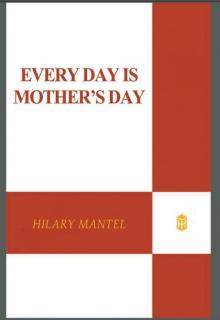 Every Day Is Mother's Day
Every Day Is Mother's Day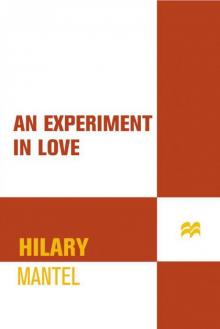 An Experiment in Love
An Experiment in Love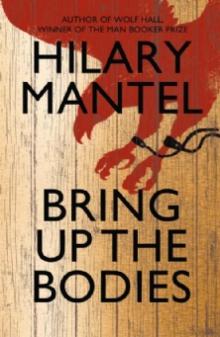 Wolf Hall
Wolf Hall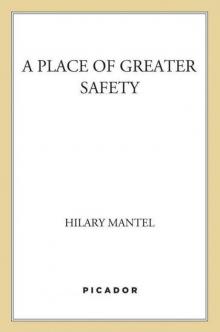 A Place of Greater Safety
A Place of Greater Safety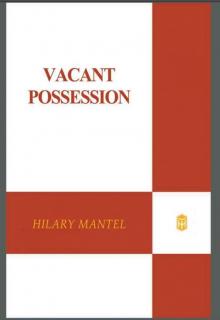 Vacant Possession
Vacant Possession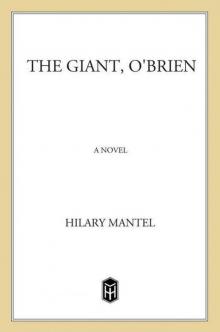 The Giant, O'Brien
The Giant, O'Brien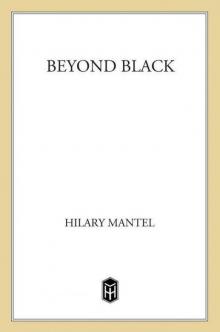 Beyond Black
Beyond Black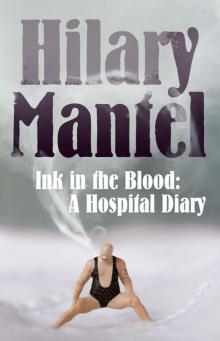 Ink in the Blood: A Hospital Diary
Ink in the Blood: A Hospital Diary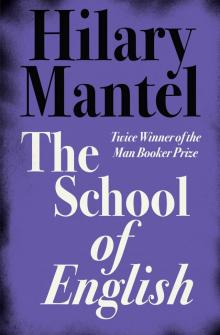 The School of English
The School of English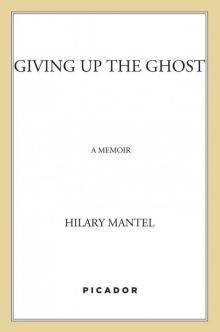 Giving Up the Ghost
Giving Up the Ghost The Mirror and the Light: 2020’s highly anticipated conclusion to the best selling, award winning Wolf Hall series (The Wolf Hall Trilogy, Book 3)
The Mirror and the Light: 2020’s highly anticipated conclusion to the best selling, award winning Wolf Hall series (The Wolf Hall Trilogy, Book 3)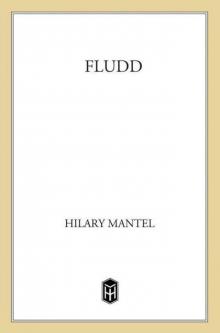 Fludd
Fludd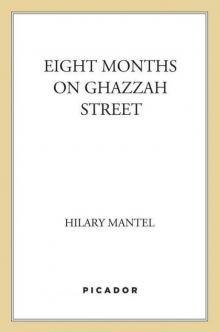 Eight Months on Ghazzah Street
Eight Months on Ghazzah Street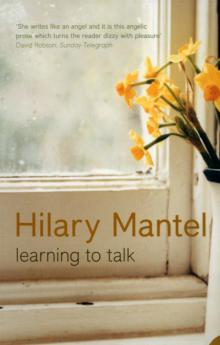 Learning to Talk
Learning to Talk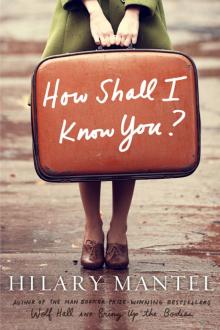 How Shall I Know You?: A Short Story
How Shall I Know You?: A Short Story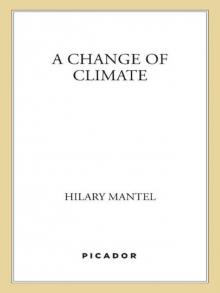 A Change of Climate
A Change of Climate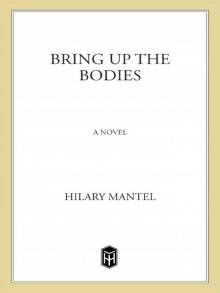 Bring Up the Bodies
Bring Up the Bodies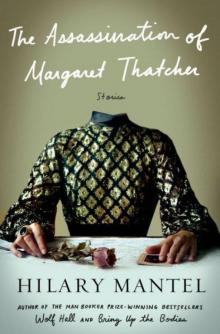 The Assassination of Margaret Thatcher: Stories
The Assassination of Margaret Thatcher: Stories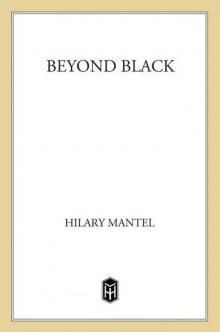 Beyond Black: A Novel
Beyond Black: A Novel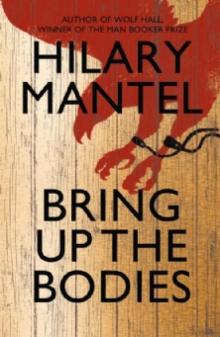 Wolf Hall: Bring Up the Bodies
Wolf Hall: Bring Up the Bodies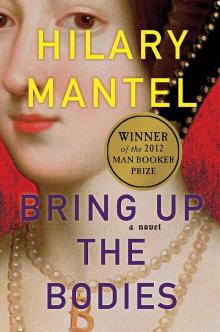 Bring Up the Bodies tct-2
Bring Up the Bodies tct-2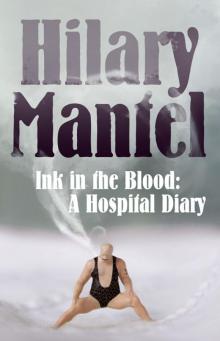 Ink in the Blood
Ink in the Blood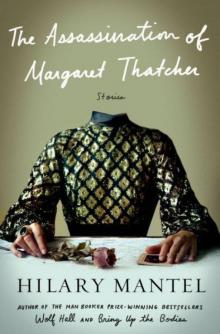 The Assassination of Margaret Thatcher
The Assassination of Margaret Thatcher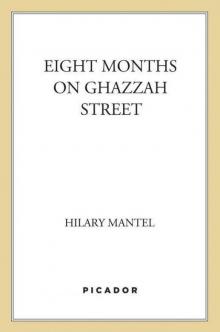 Eight Months on Ghazzah Street: A Novel
Eight Months on Ghazzah Street: A Novel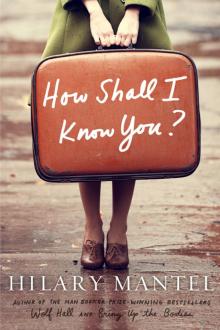 How Shall I Know You?
How Shall I Know You?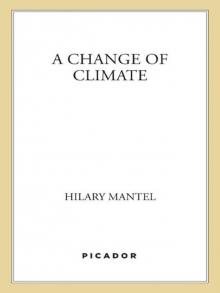 A Change of Climate: A Novel
A Change of Climate: A Novel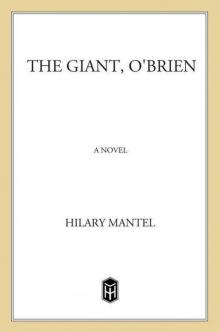 The Giant, O'Brien: A Novel
The Giant, O'Brien: A Novel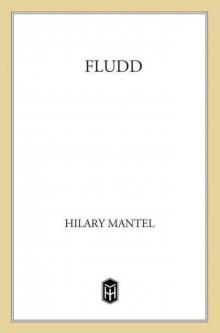 Fludd: A Novel
Fludd: A Novel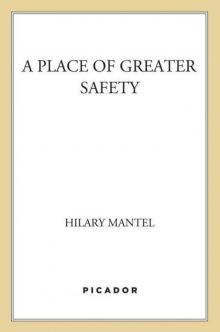 A Place of Greater Safety: A Novel
A Place of Greater Safety: A Novel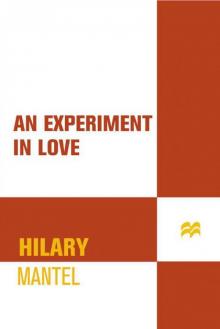 An Experiment in Love: A Novel
An Experiment in Love: A Novel